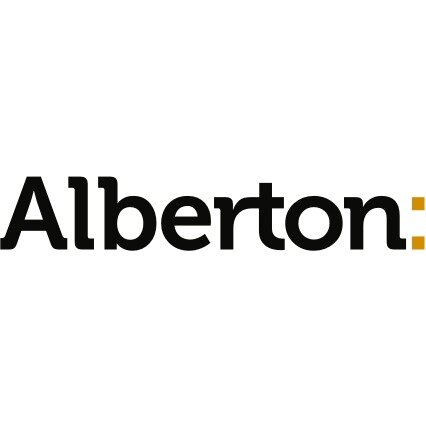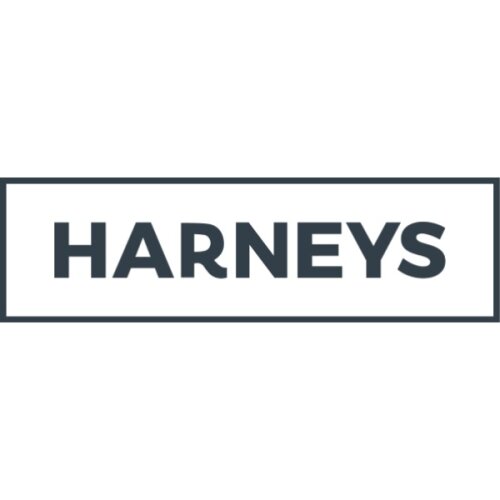Best Water Law Lawyers in British Virgin Islands
Share your needs with us, get contacted by law firms.
Free. Takes 2 min.
Or refine your search by selecting a city:
List of the best lawyers in British Virgin Islands
About Water Law in British Virgin Islands
Water law in the British Virgin Islands (BVI) forms an important part of the territory's approach to environmental management, public health, and property rights. Given BVI’s geography as an island chain, the governing principles of water law focus on the protection, allocation, and sustainable use of freshwater resources. This includes domestic water supply, use of groundwater, rights to rainwater collection, protection of marine and inland waters, and regulation of activities that might cause pollution or adversely affect water quality. The law covers both natural and artificial watercourses and provides an essential legal framework for managing the territory’s limited water resources.
Why You May Need a Lawyer
Legal issues surrounding water in the BVI can be complex, and individuals or businesses may require specialized advice for a number of reasons. You may need a lawyer if you are facing disputes over access to water, negotiating easements or water rights for property development, dealing with alleged water pollution, or seeking permits for water abstraction or desalination. Additionally, if government authorities contact you concerning non-compliance with water-related regulations, or if you are impacted by a neighbor’s activities (such as construction that affects water runoff or quality), a qualified legal advisor can help protect your interests, ensure regulatory compliance, and assist with litigation if necessary.
Local Laws Overview
Several key legal instruments and regulations govern water use and protection in the British Virgin Islands. Some areas of law particularly relevant to water issues include:
- Public Health Ordinance and regulations dealing with water supply, sanitation, and public health preservation
- Water and Sewerage Ordinance, which outlines the roles and responsibilities of the Water and Sewerage Department, including supply, management, and charges for water use
- Environmental Protection legislation for controlling pollution, waste disposal, and conservation of water resources
- Property laws regarding riparian rights, easements over land for water access, and ownership considerations for wells or other water features
- Planning laws regulating development near watercourses, wetlands, or coastal areas to safeguard water quality and prevent flooding
- Fisheries and marine legislation where it relates to water pollution or activities affecting marine habitats
It is important to note that several government agencies, such as the Water and Sewerage Department and the Department of Environment and Coastal Resources, are responsible for enforcing water-related regulations and issuing permits.
Frequently Asked Questions
What rights do property owners have to water on their land?
Property owners generally have rights to reasonable use of water located on, under, or flowing through their land, subject to restrictions in public interest and environmental protection laws. Water rights may also be modified by easements or local regulations.
Can I legally collect rainwater for household or agricultural use?
In the BVI, rainwater collection is common and generally permitted, especially due to limited natural freshwater resources. However, significant installations or use for commercial purposes may require compliance with health and safety standards.
Who is responsible for public water supply systems?
The Water and Sewerage Department is the statutory body responsible for water supply, quality control, infrastructure maintenance, and regulation of fees and connections in the BVI.
How is water pollution regulated?
Water pollution is regulated primarily through environmental protection laws. Discharging pollutants into any watercourse or the sea, whether from domestic or industrial sources, is typically restricted and subject to fines or prosecution.
Do I need a permit to drill a well or establish a private water supply?
Drilling wells or constructing new water supply systems on private property may require a permit from relevant authorities to ensure standards are met and there is no adverse impact on local aquifers or neighboring properties.
What should I do if a neighbor’s development is affecting my water source?
If you suspect a neighbor’s activities are reducing the quantity or quality of water available to you, or causing increased runoff or flooding, it is advisable to consult with a legal professional experienced in property and environmental law who can evaluate your rights and help resolve the dispute.
How are disputes over water rights resolved?
Disputes are typically resolved either through negotiation, mediation, or, if necessary, the courts. Legal representation can help clarify rights, obligations, and the best course of action for your situation.
Are there special rules for coastal or marine-associated water issues?
Yes, the BVI has specific regulations for coastal and marine waters, particularly in relation to pollution control, fishing, marine development, and the preservation of coral reefs and seagrass beds.
What penalties can be imposed for illegal water use or pollution?
Penalties may include fines, orders for remediation, suspension of permits, or even prosecution in serious cases. The extent of the penalty depends on the nature and impact of the offense.
Can foreign residents or businesses acquire water rights in the BVI?
Foreign entities can acquire water rights primarily through property purchase or lease, but must comply with all local laws and any related permit or approval requirements. Legal advice is recommended to navigate applicable restrictions and approval processes.
Additional Resources
If you need support or further information, consider contacting the following:
- Water and Sewerage Department - For queries about water supply, charges, and connection
- Department of Environment and Coastal Resources - For issues pertaining to water pollution, environmental regulations, and development permits
- Town and Country Planning Department - For guidance on construction or development near water sources
- Bar Association of the British Virgin Islands - To locate experienced water law attorneys
- Legal Aid Clinic - For basic legal advice if you cannot afford private legal services
Next Steps
If you believe you need legal assistance regarding water law in the British Virgin Islands, begin by documenting your situation carefully. Gather relevant agreements, correspondence, permits, and any evidence of water-related concerns. Then, reach out to a law firm or legal advisor with experience in water, property, or environmental law in the BVI. Clearly explain your circumstances and goals, and ask about their experience with similar cases. If urgent action is needed, such as to prevent ongoing damage or respond to legal notices, do not delay in seeking professional support. Early consultation can help protect your interests, identify legal obligations, and guide you through the appropriate procedures for resolution.
Lawzana helps you find the best lawyers and law firms in British Virgin Islands through a curated and pre-screened list of qualified legal professionals. Our platform offers rankings and detailed profiles of attorneys and law firms, allowing you to compare based on practice areas, including Water Law, experience, and client feedback.
Each profile includes a description of the firm's areas of practice, client reviews, team members and partners, year of establishment, spoken languages, office locations, contact information, social media presence, and any published articles or resources. Most firms on our platform speak English and are experienced in both local and international legal matters.
Get a quote from top-rated law firms in British Virgin Islands — quickly, securely, and without unnecessary hassle.
Disclaimer:
The information provided on this page is for general informational purposes only and does not constitute legal advice. While we strive to ensure the accuracy and relevance of the content, legal information may change over time, and interpretations of the law can vary. You should always consult with a qualified legal professional for advice specific to your situation.
We disclaim all liability for actions taken or not taken based on the content of this page. If you believe any information is incorrect or outdated, please contact us, and we will review and update it where appropriate.
Browse water law law firms by city in British Virgin Islands
Refine your search by selecting a city.














